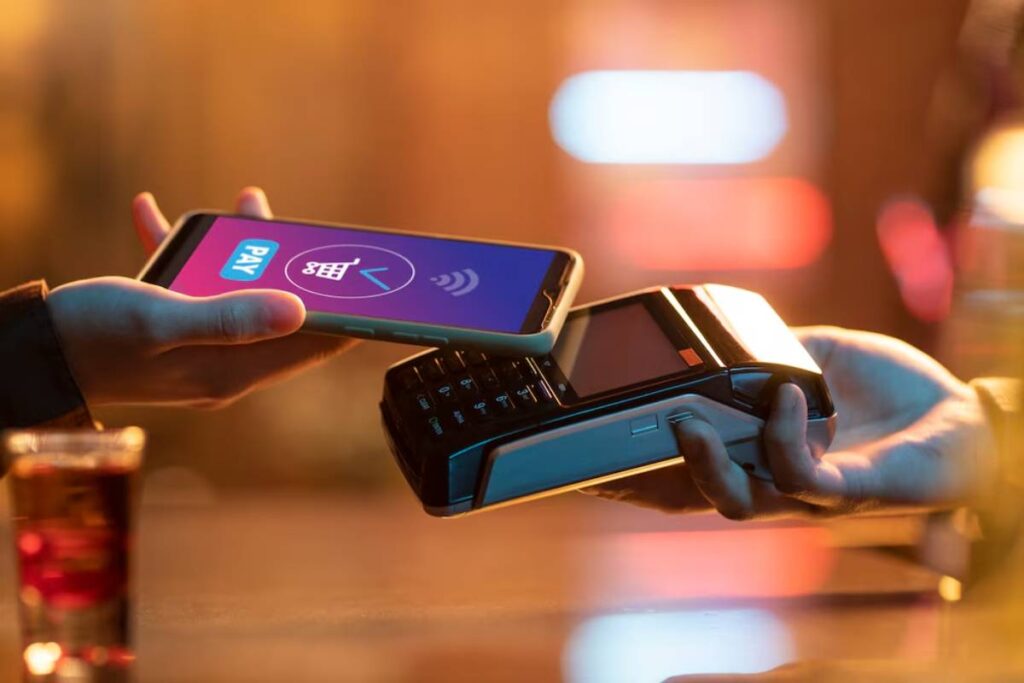The Technology Blog

How Smart Contracts Are Revolutionizing Digital Transactions
As our world becomes more digital, the way we handle transactions is evolving too. Traditional contracts often involve paperwork, third-party involvement, and long processing times. But with the rise of blockchain technology, a new solution is changing the game: smart contracts.
Smart contracts bring automation, security, and speed to digital agreements. From finance and insurance to real estate and supply chains, they’re becoming a powerful tool for modern businesses and individuals alike.
What Are Smart Contracts?
Smart contracts are self-executing programs built on a blockchain. They automatically carry out the terms of an agreement once certain conditions are met. No third-party approval or manual processing is required.
Here’s a simple example:
- Two parties agree to a service.
- They set the terms using a smart contract.
- Once the service is delivered, the payment is released automatically.
Because smart contracts run on blockchain networks, the agreement is secure, transparent, and tamper-proof.
Key Features of Smart Contracts
1. Automation
Smart contracts eliminate the need for manual processing. Once the rules are set, they execute on their own. This reduces errors, speeds up transactions, and cuts down administrative work.
2. Trust and Transparency

All participants can see the contract’s terms on the blockchain. No hidden clauses, no unexpected changes — just clear, shared logic.
3. Security
Blockchain technology ensures that smart contracts are safe from tampering. Once deployed, the code cannot be altered without consensus from the network.
4. Cost-Efficiency
By removing intermediaries such as banks, brokers, or lawyers for routine agreements, smart contracts help reduce transaction costs.
Real-World Applications of Smart Contracts
Smart contracts are already in use across several industries. Let’s explore some of the most impactful ones:
Financial Services
In the world of decentralized finance (DeFi), smart contracts are the foundation. They power lending platforms, automated trading systems, and stablecoin transfers — all without needing a bank.
For example:
- Borrowers can lock up collateral.
- Lenders provide funds.
- A smart contract manages interest payments and repayments.
Everything happens automatically and securely.
Insurance
Smart contracts can streamline the insurance claims process. Suppose a customer buys travel insurance that covers flight delays. If the flight is late, the smart contract checks the data and triggers a payout — no claim form or waiting period is required.
Real Estate
Property transactions usually involve agents, paperwork, and waiting. With smart contracts:
- A buyer sends funds to a contract.
- The contract verifies ownership and terms.
- Once complete, the title is transferred, and the seller is paid.
This can reduce delays and fraud in property deals.
Supply Chain

Smart contracts can track products through every stage of a supply chain. For example, if goods are delivered to a port and scanned with a sensor, a smart contract could confirm delivery and release payment instantly.
This adds efficiency and reduces disputes between suppliers and retailers.
Intellectual Property and Royalties
Artists and content creators can use smart contracts to manage ownership and automate royalty payments. If someone streams a song or downloads a digital asset, a smart contract ensures the creator is paid immediately based on usage.
How Smart Contracts Work
Smart contracts follow “if-this-then-that” logic. They are written in programming languages like Solidity (on Ethereum) and deployed on a blockchain network.
Here’s a simplified flow:
- Parties agree on terms: These are coded into the smart contract.
- The contract is deployed: It becomes part of the blockchain.
- Condition is met: For example, receiving a digital signature or reaching a deadline.
- Contract executes: It performs the agreed action, such as sending funds or confirming a shipment.
This makes transactions faster, more reliable, and free from manual errors.
Benefits for Businesses and Individuals
Speed
Smart contracts operate 24/7 and respond immediately when conditions are met. This reduces waiting times, especially in global transactions.
Reduced Risk
Because contracts are transparent and tamper-resistant, they reduce the chance of fraud or disputes.
Lower Costs
Removing middlemen saves time and money. Overhead costs are significantly lower in processes powered by blockchain automation.
Global Reach
Smart contracts are not limited by borders. They can be used across different countries, making them ideal for international agreements and payments.
Challenges and Limitations
While smart contracts have great potential, they are not without limitations.
Coding Errors
If the contract contains a mistake in its code, it could result in incorrect or irreversible actions. That’s why testing and audits are crucial.
Legal Recognition
Smart contracts are still new in many regions. Not all jurisdictions recognise them as legally binding. The law is still catching up with the technology.
External Data Dependency
Smart contracts often rely on data from the outside world (e.g., flight delays, and weather conditions). This requires the use of oracles, which bring in external data — but also introduce an element of trust in third-party data sources.
A Growing Trend in Digital Agreements
As more businesses adopt blockchain, smart contracts are likely to become the standard for digital transactions. Platforms like Ethereum, Solana, and Avalanche are constantly improving scalability and flexibility for contract deployment.
Startups, corporations, and even governments are exploring how to use smart contracts for:
- Automated tax collection
- Voting systems
- Supply chain regulation
- Cross-border payments
The interest is growing, and innovation is accelerating.
Conclusion: The Future of Transactions Is Automated and Secure
Smart contracts offer a new way to handle agreements in the digital age — fast, transparent, and trustworthy. By removing the need for intermediaries and automating execution, they’re helping businesses and individuals operate more efficiently than ever.
As blockchain networks mature and legal frameworks evolve, smart contracts are set to play a central role in shaping how we do business — not just online but everywhere.









